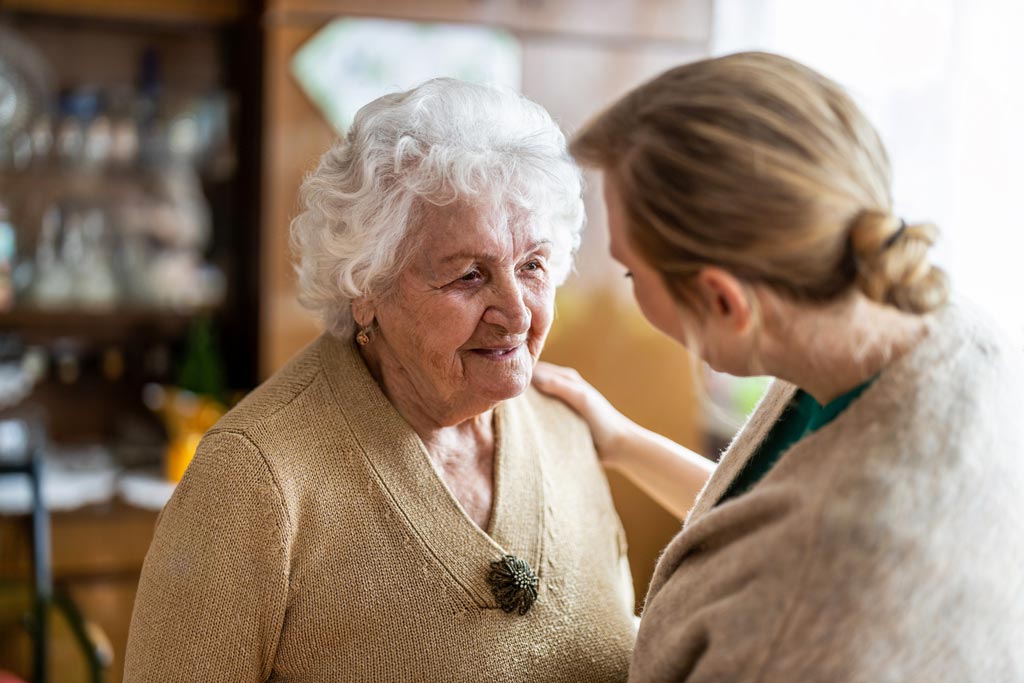Referral Program
Know someone? Tell them about Chelsea!

As loved ones grow older, it is natural to become more aware of health conditions that may affect their safety and quality of life. Dementia is one of the most common concerns, impacting millions of people each year. A person’s risk of developing dementia increases with age, roughly doubling every five years after age 65.
Many people ask, what are the stages of dementia, and how do they progress over time. Understanding these stages can help families recognize symptoms early, plan ahead, and seek the right level of support.
Dementia is not a single disease. It is a general term used to describe a group of symptoms that affect memory, thinking, reasoning, and behavior. These symptoms result from different conditions that damage the brain.
Common types of dementia include:
Some individuals experience more than one type at the same time, which is known as mixed dementia.
Dementia can also be grouped by which parts of the brain are affected. Cortical dementias impact areas responsible for memory, language, and problem-solving. Subcortical dementias often affect movement, emotions, and the ability to begin tasks. Lewy body dementia affects both areas.
Although symptoms vary by person and type of dementia, most cases follow a gradual progression. Healthcare professionals commonly describe the stages of dementia in seven phases, ranging from no symptoms to severe decline.
At this stage, there are no noticeable symptoms. A person functions normally, even though changes may already be occurring in the brain.
This stage includes mild forgetfulness, such as misplacing items or struggling to find the right word. These changes are often mistaken for normal aging.
Memory problems become more noticeable. A person may repeat questions, forget recent conversations, or have trouble with planning and complex tasks.
Often considered early dementia, this stage brings clear changes in memory and behavior. A person may struggle with routine activities, withdraw socially, or experience mood changes. Medical guidance becomes especially important at this stage.
During this stage, individuals may forget important personal information, such as phone numbers or family names. They usually need help with daily activities like bathing or dressing. Many families begin considering home care or memory care support.
At this stage, people require significant assistance with activities of daily living. They may have difficulty recognizing loved ones, experience confusion, anxiety, or repetitive behaviors, and need ongoing supervision.
The final stage of dementia involves a near-total loss of independence. Communication becomes limited, mobility declines, and individuals often need full-time care.
Sundowning refers to increased confusion, agitation, or restlessness that occurs later in the day. It can appear at any stage of dementia, but is more common in the middle and later stages. Structured routines and a calm environment can help reduce these symptoms.
Dementia progresses differently for every person. Learning the stages of dementia helps families prepare emotionally and practically for future needs.
Supportive care often includes:
These approaches can help maintain comfort and quality of life.
Navigating dementia is challenging, but families do not have to do it alone. A supportive community plays a vital role in maintaining dignity, safety, and emotional well-being.
At Chelsea Senior Living, our Memory Care communities provide secure environments with personalized care. Our programs focus on familiarity, engagement, and connection to support residents through every stage of dementia.
We are here to support both residents and families every step of the way.
If you are learning about dementia or asking what the stages of dementia are for a loved one, understanding the journey can make a meaningful difference.
Contact Chelsea Senior Living to learn more about our Memory Care services and how we help families navigate each stage with compassion, expertise, and peace of mind.